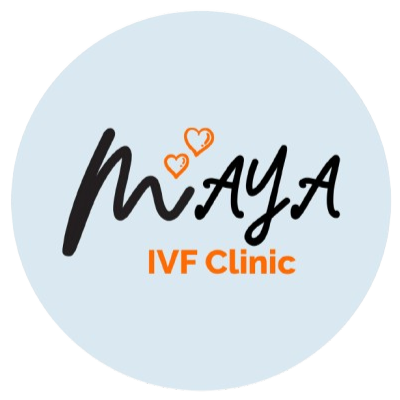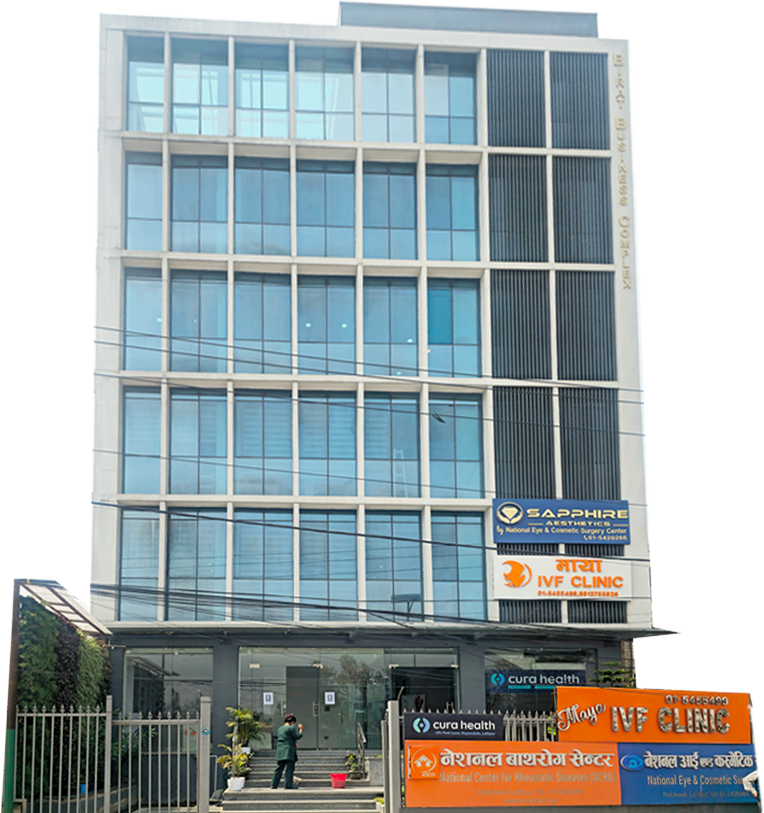Genetic and Advanced Procedures
In some fertility cases, even when everything seems to go right—good-quality eggs, healthy sperm, and successful embryo transfer—pregnancy may still not happen or may end in miscarriage. This could be due to genetic abnormalities in embryos or problems with the uterine lining (endometrium). That’s where Genetic and Advanced Procedures come in.
At Maya IVF Clinic, we use science-backed, advanced fertility techniques like Pre-Implantation Genetic Testing (PGT-A / PGT-M) and PRP Therapy for Thin Endometrium to improve the chances of a healthy pregnancy—especially in complex or previously failed cases.
- Pre-Implantation Genetic Testing (PGT-A / PGT-M)
What is PGT?
PGT (Pre-Implantation Genetic Testing) is a lab procedure used to test the embryos for genetic or chromosomal problems before transferring them into the uterus during IVF.- PGT-A (Aneuploidy Screening): This checks whether the embryo has the correct number of chromosomes. Embryos with the wrong number of chromosomes often lead to failed implantation, miscarriage, or birth defects.
- PGT-M (Monogenic Disease Testing): This is used for couples who are at risk of passing on a specific inherited disease (like Thalassemia, Cystic Fibrosis, or Sickle Cell Anemia). It helps us select embryos that are free from the disease.
- Women over the age of 35
- Couples with a history of recurrent miscarriages
- Previous failed IVF attempts
- Family history of genetic diseases
- Male partner with abnormal sperm DNA
- Couples using donor gametes (egg or sperm)
- Eggs are fertilized through IVF to create embryos.
- A few cells are carefully taken from each embryo (this doesn’t harm the embryo).
- These cells are sent to a genetic lab for testing.
- Only genetically normal embryos are selected for transfer to the uterus. PGT helps improve the success rate of IVF, reduces the chances of miscarriage, and increases the likelihood of having a healthy baby.
- PRP Therapy for Thin Endometrium
What is PRP Therapy?
PRP (Platelet-Rich Plasma) is a natural therapy that uses the patient’s own blood to help the uterine lining (endometrium) grow thicker and healthier—essential for successful embryo implantation. In some women, the lining of the uterus remains thin even after medication. A thin endometrium can reduce the chances of pregnancy, even if the embryo is healthy.
Who Needs PRP Therapy?- Women with thin endometrium that does not respond well to hormones
- Repeated failed embryo transfers
- History of Asherman’s syndrome or uterine scarring
- Women with poor blood flow to the uterus
- A small amount of your own blood is drawn and processed to concentrate the healing cells (platelets).
- This platelet-rich plasma is then infused into the uterus through a thin catheter.
- PRP helps regenerate and thicken the uterine lining, creating a better environment for the embryo to implant and grow. PRP is safe, non-surgical, and uses your body’s natural healing power to support pregnancy.
- State-of-the-art lab facilities and expert embryologists
- Personalized planning for couples with complex fertility histories
- Focused on reducing miscarriage risks and increasing healthy pregnancies
- Treatments done with utmost care, transparency, and emotional support
If you’ve faced repeated IVF failures, miscarriages, or are worried about passing on a genetic disease, these advanced treatments can offer hope, clarity, and a better chance at success. At Maya IVF Clinic, we walk every step of the journey with you—with care, compassion, and commitment.
Because every embryo deserves a healthy start, and every hopeful parent deserves peace of mind.






 Nepal International Fertility and Laparoscopic Centre (NIFLC). All rights reserved. Powered by
Nepal International Fertility and Laparoscopic Centre (NIFLC). All rights reserved. Powered by  Sciever Inc.
Sciever Inc.